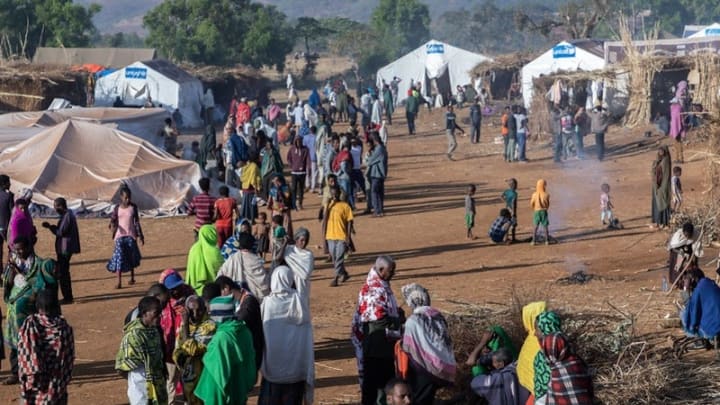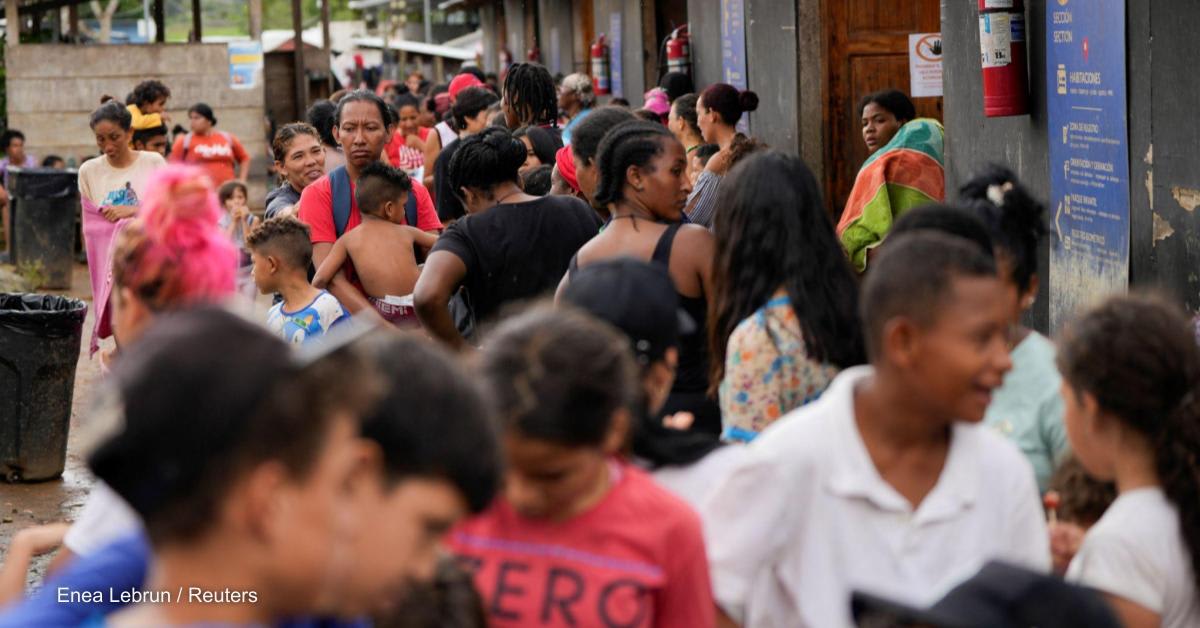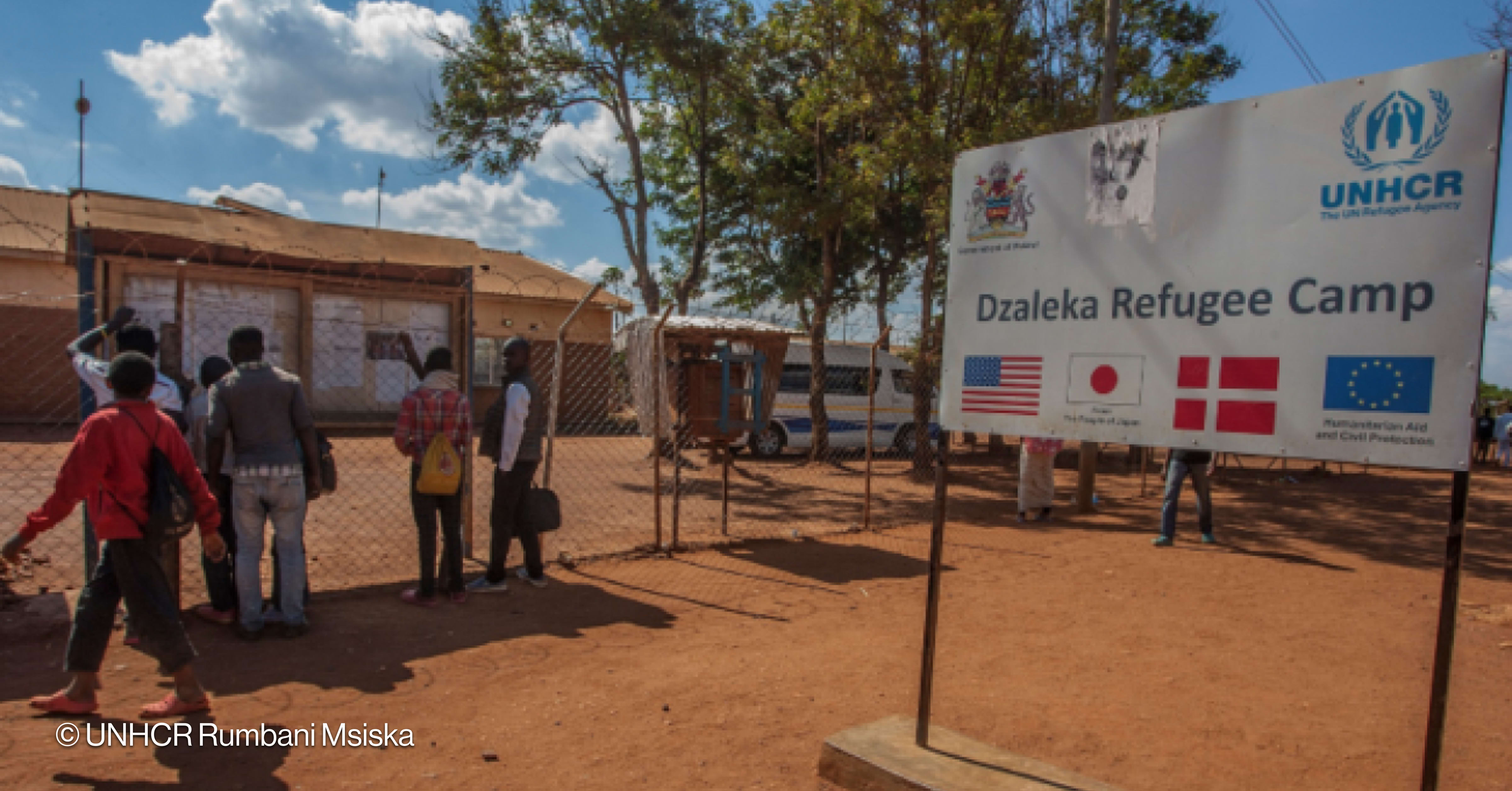
Displacement in fragile contexts, when left unaddressed, can become a cycle that reinforces conflict and instability. At home and abroad, U.S. President Joe Biden's administration has asserted its commitment to protecting refugees, migrants, and people displaced within their own countries by addressing the root causes of displacement. This comes on the heels of fraught U.S. policy for the human rights of refugees, migrants, and other individuals fleeing crises.
Against this backdrop, the United States has the opportunity to strengthen its leadership on displacement and migration to rebuild trust with key allies and affirm its commitment on the global stage. As the U.S. seeks to manage displacement and migration issues at home, it should also address instability that drives displacement around the world.
The new U.S. Strategy to Prevent Conflict and Promote Stability — a 10-year integrated strategy to address global fragility and stabilize conflict — should be a cornerstone of U.S. efforts to address global displacement. But this strategy, released in December, fails to explicitly mention the issue.
This contrasts with the World Bank’s Strategy for Fragility, Conflict, and Violence, for example, which contains numerous references to displacement as a spillover effect of conflict and instability and also outlines specific measures to address it. Because displacement can be a byproduct and driver of conflict and fragility, the Biden administration should directly address this policy gap when crafting country plans for the fragility strategy.
Ensuring countries manage displacement in a democratic manner, while supporting progress in their political trajectory, is critical to lasting peace and stability.
—As part of the Global Fragility Act, the U.S. government is required to select priority countries affected by conflict, and displacement is a pressing reality in many of the contexts that could be chosen. Conflict, human rights violations, and persecution displaced a staggering 79.5 million individuals by the end of 2019 — the highest number on record. During the first half of 2020, more than 14.6 million people were newly displaced within their countries, which was more than one-third higher than the same period in the previous year.
As new U.S. leadership takes form, it should not only address pressing humanitarian challenges that arise from displacement, but also take steps to improve democratic governance and promote stability worldwide. It can do so in two ways.
First, the U.S. should support local governments to manage inclusive service delivery, develop rapid responses for changing patterns in movement, and prepare for the long-term effects of displacement. Governance, particularly at a local level, plays a key role in both preventing and exacerbating conflict that can underlie displacement.
Many host countries affected by conflict and fragility are taking the lead in developing migration and displacement responses but are often stretched beyond their capacity. Local governments can be a critical link between community needs and national policies on refugees and migrants.
For example, Colombia has received over 1.7 million Venezuelan refugees and migrants since 2014, and local governments have played a critical role in disseminating information on national government policies that guarantee their human rights and services. As part of their mandate, municipal governments across the country are required to create municipal development plans, which can help expand displacement policies and programs.
Foreign assistance can strengthen and amplify these initiatives to advance U.S. interests of preventing regional destabilization, enabling Venezuelan integration, and expanding public services for host, refugee, and migrant communities.
Second, the U.S. should scale and replicate lessons learned to support host and origin communities. Strengthening political and civic platforms can help defuse conflict and unlock the skills, knowledge, and contributions of both populations.
Internal displacement surges in first half of 2020
Disasters, conflict, and COVID-19 mean the number of people newly displaced within their own countries in 2020 could be triple that of 2019.
For example, in refugee settlements in Uganda, individuals are elected to refugee welfare committees to serve as key interlocutors between the national government and international partners. This model is subject to limitations; all decisions ultimately need approval by the prime minister’s office, and committees are constrained in the issues they can raise.
However, the structure still offers an opportunity to strengthen refugees’ involvement in procedures and programs, as well as to provide input to donors and partners. The U.S. could help formalize such a structure and replicate these lessons in other host countries to address some of the root causes of instability in migrant communities.
As the U.S. works to address migration and refugee challenges at home, it must also recommit to sharing responsibility in developing avenues and solutions for displacement worldwide. As displacement trends steadily increase, it is essential to ensure that displaced and host communities have the pathways to pursue and maintain stability. Ensuring countries manage displacement in a democratic manner, while supporting progress in their political trajectory, is critical to lasting peace and stability.










